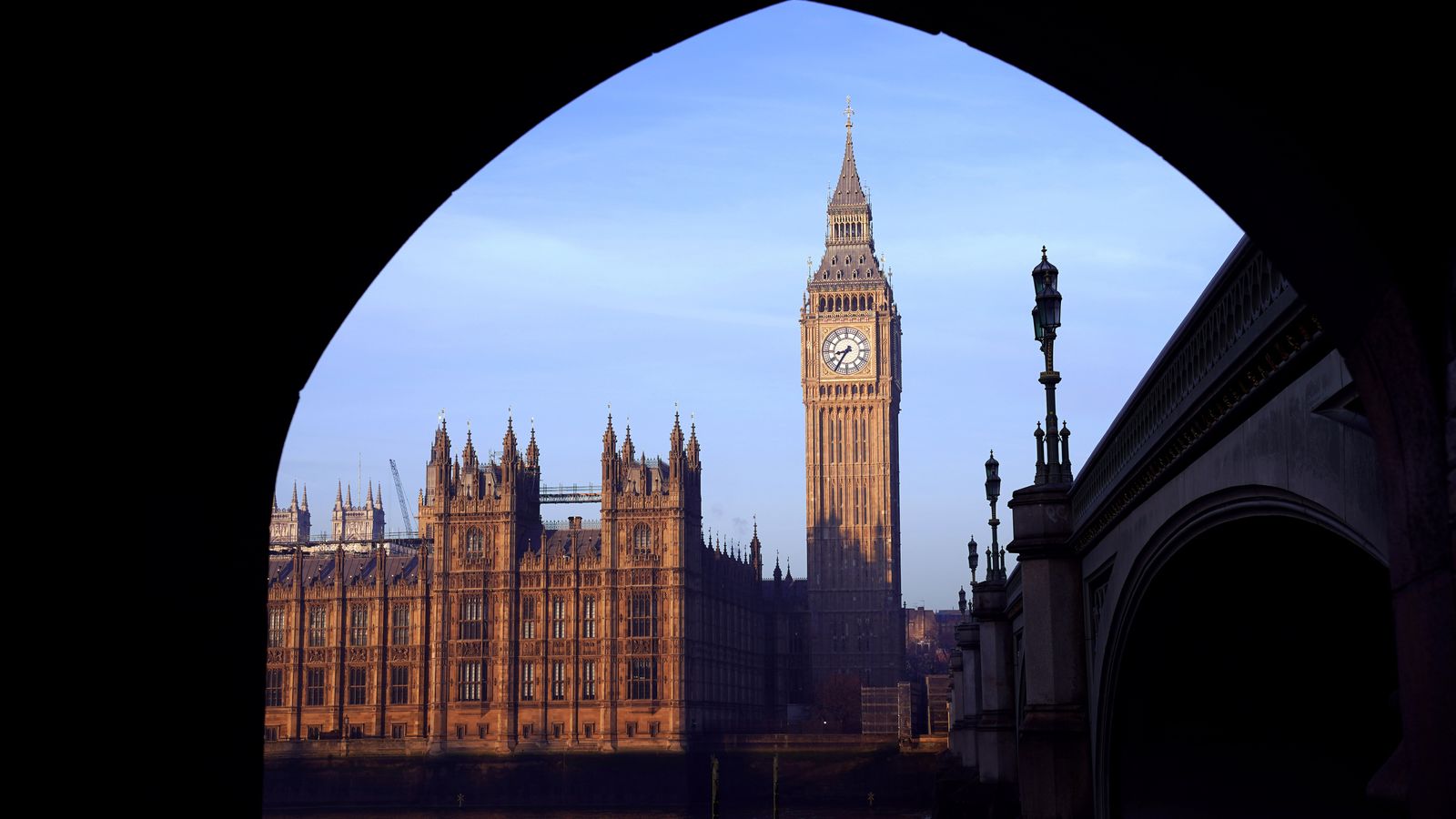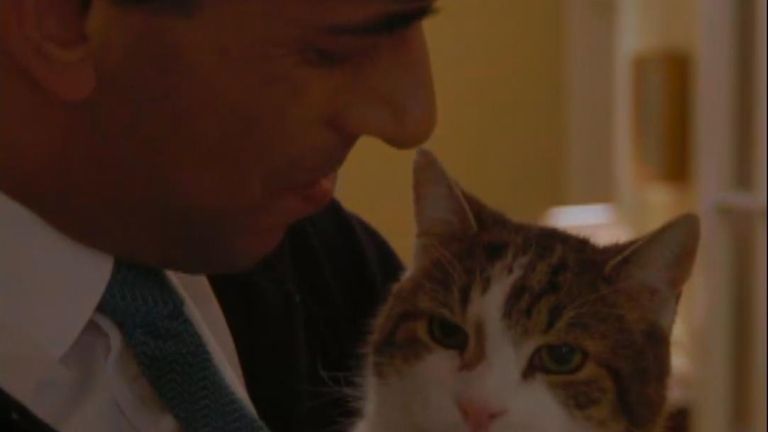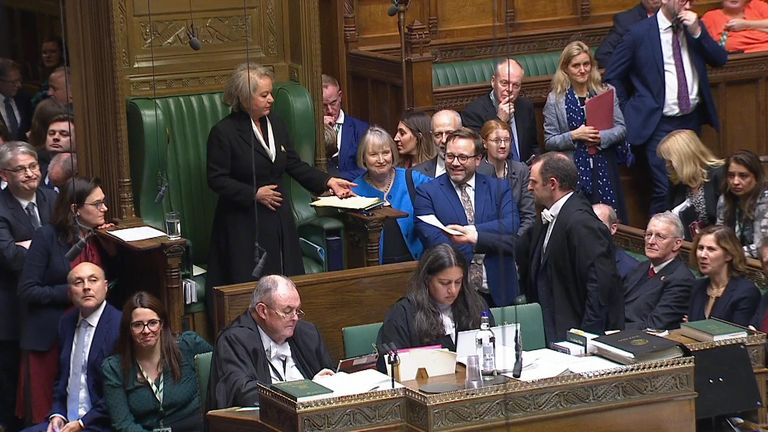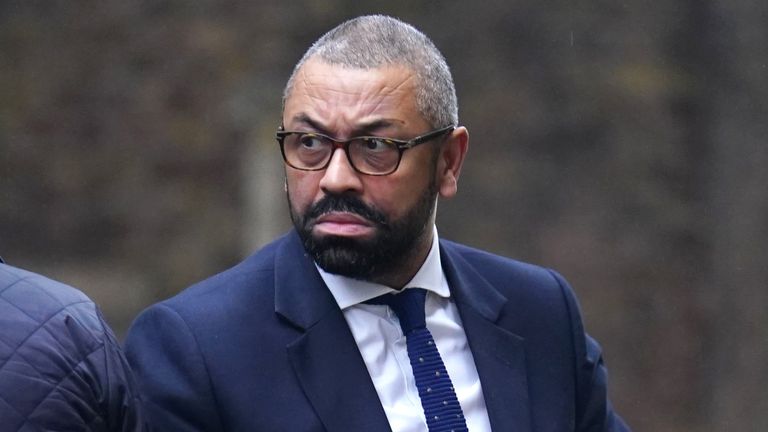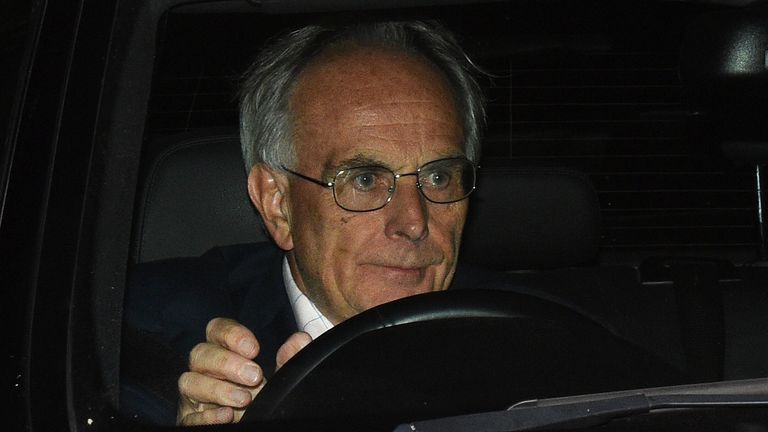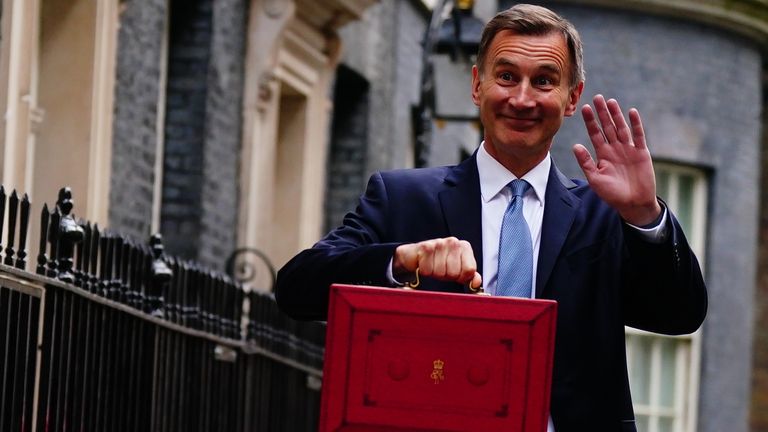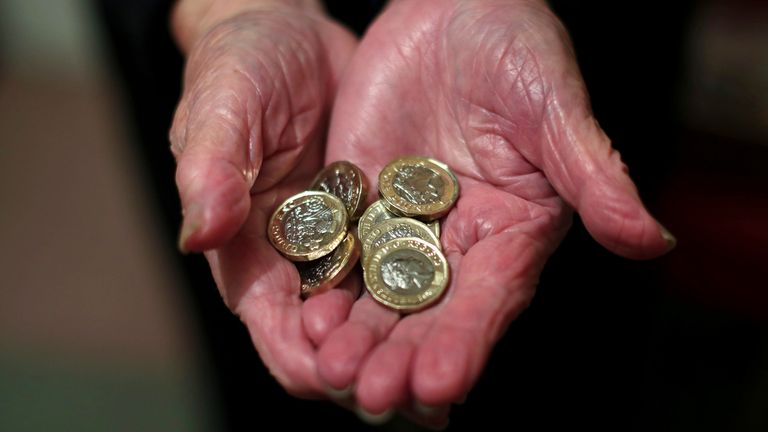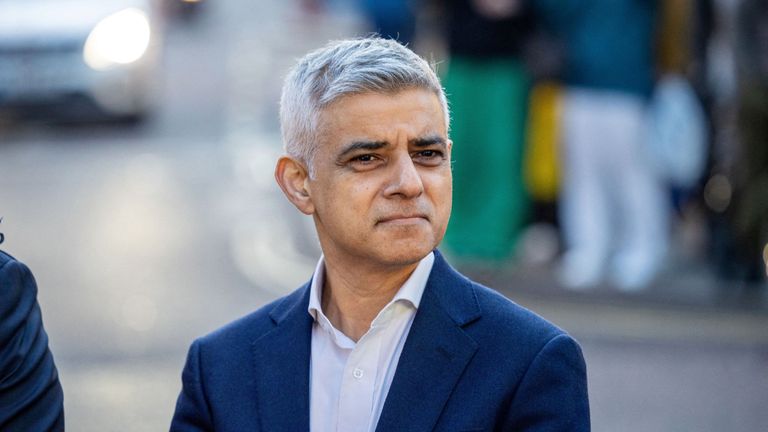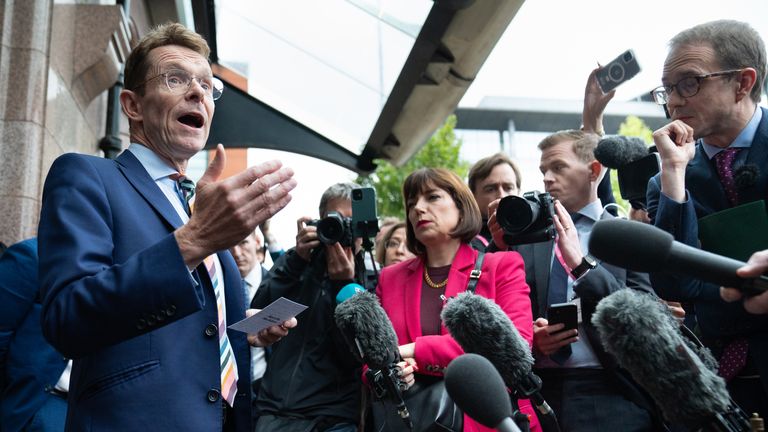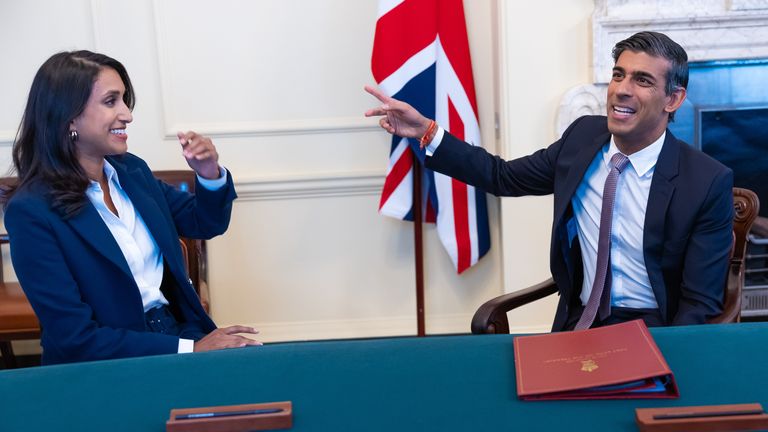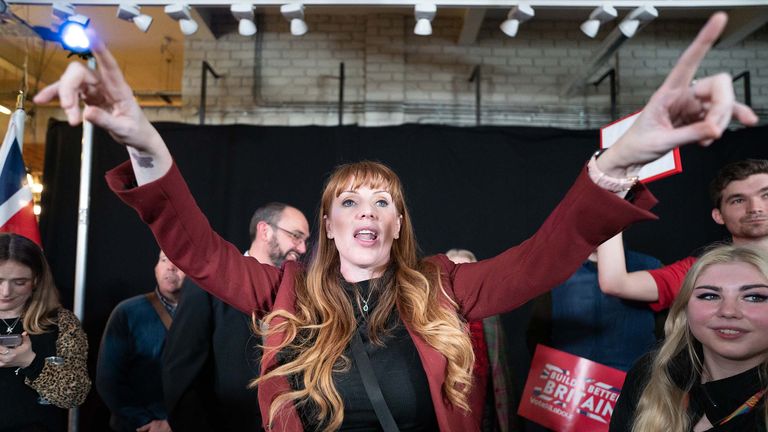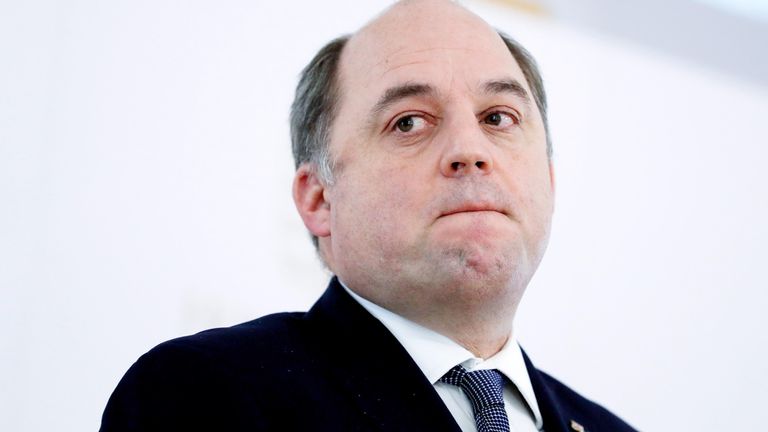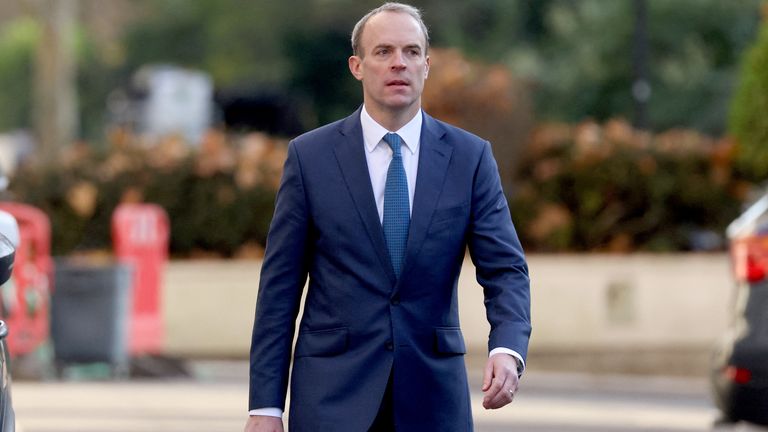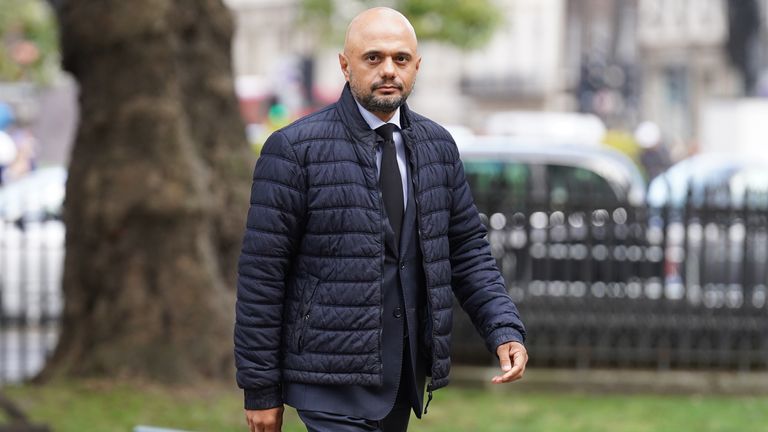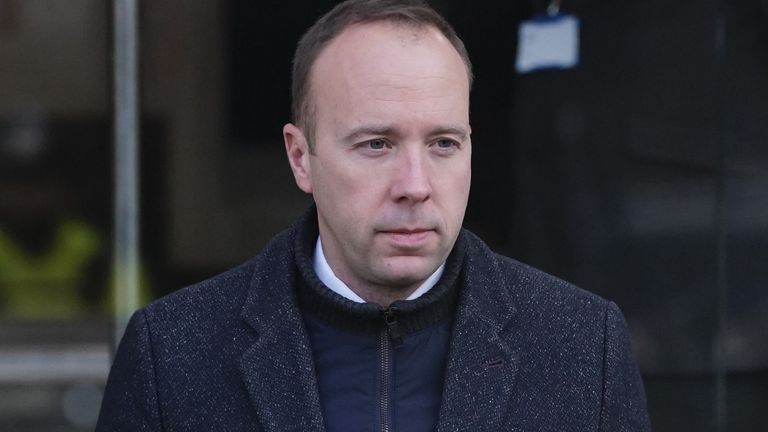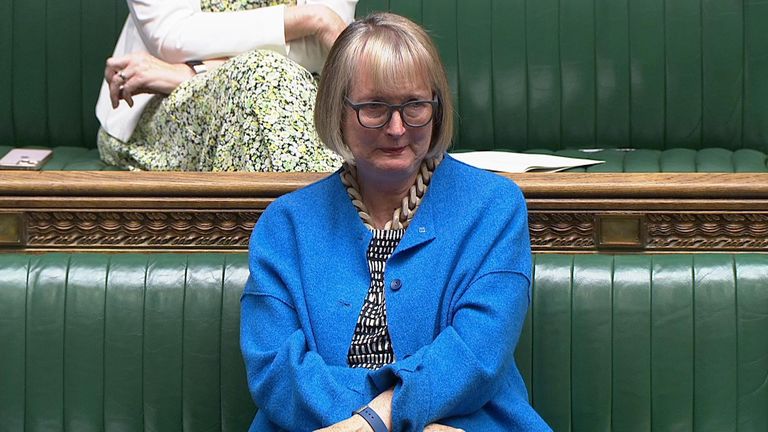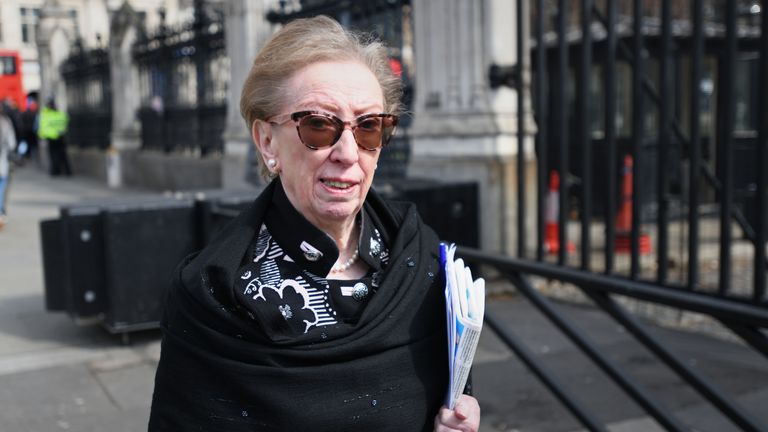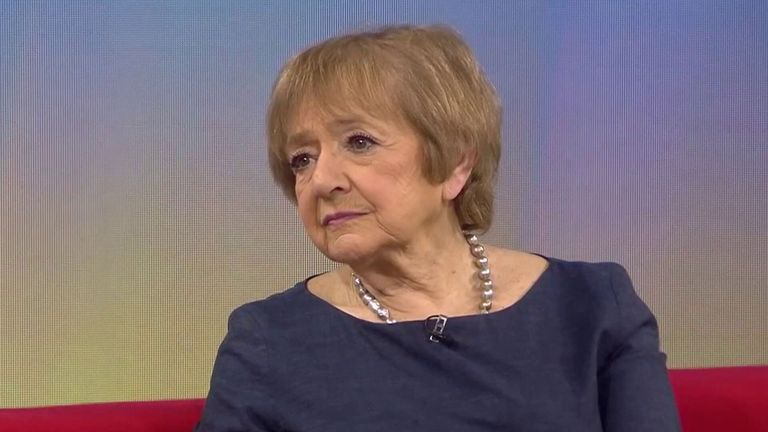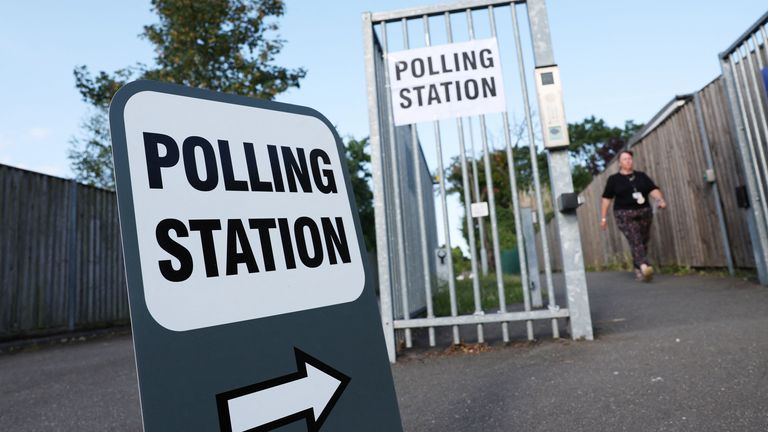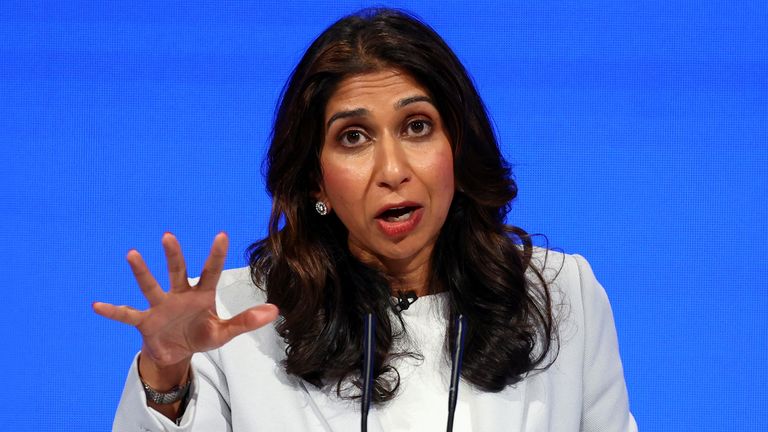With the start of a new year, the 2024 general election campaign will officially get under way. The time for festive frivolity and fun is over.
Rishi Sunak poked fun at himself with a highly amusing Home Alone-style video filmed in Number 10 Downing Street for Christmas day. Sir Keir Starmer and wife Victoria went to the pub for a Christmas day drink.
But politics is about to get deadly serious now. And, possibly, dirty and nasty too, with the two main parties unleashing bitter personal attacks on their opponent’s leader.
So buckle up. It’s going to be a bumpy ride. The starting gun for the election campaign is about to be fired.
Here’s how 2024 is likely to shape up, month by month
JANUARY
The big new year battle between the parties – and between Rishi Sunak and his mutinous Tory backbenchers – will be a parliamentary dogfight over the government’s controversial Rwanda Bill, or – to give it its full title – the Safety of Rwanda (Asylum and Immigration) Bill.
The prime minister comfortably won the vote at second reading with a majority of 43. But that was because Tory right-wingers, who claim the bill is feeble and won’t “stop the boats”, were persuaded to abstain rather than vote against it.
So what did the PM promise them? And will they block the bill in its later stages, which are expected to begin in the week beginning 15 January? At its worst, defeat on such a flagship piece of legislation could bring down the government. And we’d be into a very, very early election.
The Rwanda battle is a big test for the increasingly gaffe-prone Home Secretary James Cleverly, who was accused of calling the Rwanda scheme “bats**t”, a Labour MP’s constituency a “s**t-hole” – both of which he denied – and joked about giving his wife a date-rape drug, which he didn’t deny but apologised for.
If the Rwanda Bill and the “stop the boats” policy fails, Mr Cleverly will surely get the blame. The embattled home secretary can’t even rely on the experienced former immigration minister Robert Jenrick for help any more. He’s now one of the rebels.
Before the parliamentary clashes, Mr Sunak and Sir Keir are expected to kick off the year with big policy speeches, setting out their priorities, as they did last year. That was when Mr Sunak unveiled his five pledges, including “stop the boats”. And haven’t they gone well!
Sir Keir, meanwhile, is understood to be poised to announce alternatives to the government’s Rwanda plan, designed to neutralise Tory attacks that seek to brand him as weak on immigration. Good luck, as they say, with that.
FEBRUARY
After seven bruising parliamentary by-elections in 2023, another is looming for Rishi Sunak in Wellingborough, Northamptonshire, after the maverick and somewhat eccentric Tory MP Peter Bone was ousted in a recall petition after being found guilty in a parliamentary inquiry of bullying and exposing himself to a staff member.
Although it was held by Labour from the 1997 Tony Blair landslide until 2005, it’s a safe Tory seat with a majority of 18,540. So what’s the problem for the Conservatives? Well, the Tory majority was 20,137 in Selby and Ainsty, 19,634 in Tamworth and a massive 24,664 in Mid Bedfordshire – and all three fell to Labour in by-elections.
It’s also possible that Mr Bone, who continues to protest his innocence, will stand as an independent, making it even harder for the Conservatives to hold the seat.
And let’s not forget that another by-election is likely later in the year in the much more marginal seat of Blackpool South, where Tory MP Scott Benton is facing suspension and possible recall petition after being caught in a lobbying sting. His majority was only 3,690.
MARCH
We now know that Jeremy Hunt’s budget will be on 6 March, fewer than 10 weeks away and unusually early for a spring budget. Last year’s was on 15 March.
The reason it’s so early? Well, obviously to leave open the option of an early election, in May. Or, more likely, to make Labour believe the Tories are keeping open the option of a dash to the polls.
In 1992, Norman Lamont’s pre-election giveaway budget was on 10 March. He brought in the 20% tax rate for low earners and raised thresholds. John Major called an election the next day and on 9 April won an unexpected victory with a majority of 21. Rishi Sunak would gladly take that, given the state of the opinion polls at the turn of the year.
One option for Mr Hunt is to cut or abolish inheritance tax. That would delight Tory right-wingers, but many red wall MPs believe there are better ways to cut taxes and help those on lower and average incomes. Labour would also condemn it as a tax cut for millionaires.
Tories who back scrapping inheritance tax argue, however, that it would create a clear dividing line with Labour, unlike raising the 40% income tax threshold or cutting the 20% basic rate, which Labour might support.
March is also the month when parliament would have to be dissolved if there’s to be a May election. Since the abolition of the Fixed Term Parliaments Act, an election is now held 25 working days after dissolution, not counting weekends and bank holidays.
APRIL
The start of a new financial year in April is when Mr Hunt and Mr Sunak want any tax cuts to land in people’s pay packets, especially if there is to be a May election.
Even if the election is not until October, the Conservatives will want voters to feel the benefit of budget tax cuts. That’s why Tory MPs are so desperate for the chancellor to cut taxes as soon as possible, hoping a tax giveaway will help cut Labour’s stubborn opinion poll lead, which is around 20 percentage points at the turn of the year.
MAY
Unless Mr Sunak calls a snap election in the spring, the final test of public opinion before a general election takes place on 2 May, with local elections in England and Wales.
There are polls in metropolitan boroughs, unitary authorities and district councils and for big city mayors and police and crime commissioners.
After benefiting from a ULEZ backlash in the by-election in Boris Johnson’s former constituency of Uxbridge and South Ruislip in July, the Tories will be hoping to turn the London mayoral election into a referendum on ULEZ.
But despite the unpopularity of ULEZ, Labour’s Sadiq Khan is odds on to win a record third term, largely because the Conservatives picked a relatively unknown candidate, Susan Hall, as his opponent.
A more significant mayoral election will be Tory mayor Andy Street’s bid to win re-election in the West Midlands, a region full of marginal parliamentary constituencies which is always a key general election battleground.
JUNE
A Tory rout in the May elections – possible, if the end-of-year opinion polls are to be believed – will trigger severe Tory jitters and blind panic among many backbenchers convinced they’re on course to lose their seat in the general election.
And with Nigel Farage‘s former party, Reform UK, now polling at between 9% and 11% in opinion polls, MPs and activists on the right of the Conservative Party will see Mr Farage, a hero to many after his I’m a Celebrity jungle exploits, as their saviour.
There’s a clamour for a Farage comeback from some, and the Conservatives may be open to a deal that persuades current Reform UK leader Richard Tice to drop his threat to stand in every constituency in the UK, including against Eurosceptic Tory MPs. That threat surely cannot hold until the general election.
What price Lord Farage or Lord Tice, in return for a pledge not to oppose Tory MPs in the election? Mr Farage has said he plans to “sit out” the next general election. In other words, not stand as a candidate. After all, he has stood for parliament unsuccessfully seven times. Yes, seven.
King’s Birthday Honours, anyone?
JULY
If Rishi Sunak is planning an October election, July is his last chance to freshen up his top team ahead of the election in a cabinet reshuffle.
One possible move is easing out, or sideways, Jeremy Hunt, and installing his protege and favourite Claire Coutinho as chancellor. Some MPs think Mr Sunak wants to do that to rob Labour’s Rachel Reeves of the honour of becoming the UK’s first female chancellor.
Currently energy secretary, after a rapid rise to the cabinet since her election as MP for former chancellor Sir Geoffrey Howe’s Surrey East constituency in 2019, she’s only 38.
Unless Mr Hunt turned down a sideways move, he’d be a good fit for home secretary, replacing gaffe-prone Mr Cleverly, and would complete the trio of serving in all three so-called “great offices of state”, having previously been foreign secretary.
AUGUST
No let-up in campaigning if we’re hurtling towards an October election. Expect to see Tory attack dog Richard Holden, the party chairman whose parliamentary seat is disappearing in boundary changes, let off the leash.
And for Labour, look out for the party’s deputy leader Angela Rayner as she takes her “Rayner on the road” campervan to your town. We can even expect to see lots of seaside campaigning. Just what you want when you’re sunbathing on the beach!
SEPTEMBER
Parliament will meet for what’s known as “wash-up”, tidying up and completing all unfinished business in the parliamentary session.
But it will also be time for the House of Commons to say goodbye to several big beasts who’ve held senior positions in their party and are standing down. Some of them are veterans, but some are not so mature.
Senior Tories leaving the Commons include Ben Wallace, Dominic Raab, Sajid Javid and Matt Hancock and from Labour Harriet Harman, Dame Margaret Beckett and Dame Margaret Hodge. Most will surely soon be back in parliament in the House of Lords.
A September dissolution probably means no party conferences, though since they make money there may be moves to keep them. More likely, though, there’ll be campaign rallies around the country instead.
OCTOBER
The election date? The Tories had considered 31 October, but it’s Halloween, of course, and they wouldn’t want headlines about an election “fright night”. So the week before, Thursday 24 October, looks the favourite.
During the campaign, the two main parties are likely to bring some of their top box office performers out of retirement to work their magic on the voters.
So, for the Tories, despite his “Marmite” appeal, Boris Johnson will no doubt be urged to woo red wall voters in the former Labour seats with his brand of Brexity populism, while the housewives’ favourite, the new foreign secretary Lord David Cameron is likely to be asked to charm posh middle class Tories in the shires.
For Labour, Sir Tony Blair hasn’t lost his magic and will be back. And even grumpy Gordon Brown is revered by Scots and will surely be deployed to repel the yellow peril of the SNP north of the border.
And the result? If there’s a hung parliament, it could all take weeks or even months to sort out, as it did in 2010 when the Lib Dems took an age before deciding to go into coalition with Mr Cameron. And a fat lot of good it did them in the 2015 election!
NOVEMBER
Don’t underestimate the impact of the US presidential election, on Tuesday 5 November, on UK politics and indeed on international affairs if Donald Trump returns to the White House.
Nigel Farage, whether he’s inside or outside the Tory big tent by then, will surely be among the first on a plane to Washington. Closely followed, almost certainly, by Boris Johnson.
A Trump victory in the US is likely to trigger a loud and excitable “bring back Boris” campaign if the Tories have lost an October election.
A Trump presidency will also be a nightmare for whoever is UK PM, whether it’s still Mr Sunak or Sir Keir finding his feet in Downing Street. Ukraine and the Middle East would become dangerous political minefields for a UK prime minister as well as brutal war zones.
If Mr Sunak has lost, he’ll no doubt be out in days. The Tory party is very unforgiving of a loser.
DECEMBER
But who will succeed Mr Sunak in a pre-Christmas Tory leadership election if he has lost the general election? Suella Braverman and Kemi Badenoch, rival queens of the Tory right, will certainly run.
Boris Johnson? We may hear his famous quote – “If the ball came loose from the back of the scrum…” from him once again.
Nigel Farage? He did say “Never say never” after his jungle jaunt, in what was seen as a hint that he might return to the Tories as part of a dream ticket with Mr Johnson.
Far-fetched? Probably. But Margaret Thatcher famously said that in politics “the unexpected always happens”. And who would’ve predicted the return of Lord Cameron as he strode up Downing Street that November morning?
Click to subscribe to the Sky News Daily wherever you get your podcasts
With the party’s big lead in the polls, a Labour win in 2024 is widely predicted. But could Mr Sunak repeat John Major’s shock victory of 1992?
If he does he’ll be able to record another Home Alone video in Downing Street next Christmas. And Sir Keir and his wife will have more time to go to the pub.
